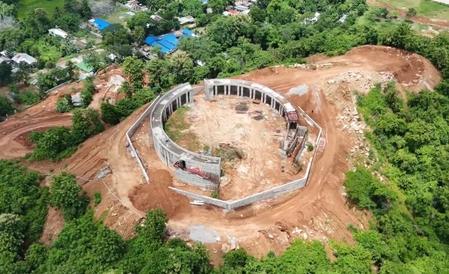
Guwahati, Aug 5 (IANS) In a poignant tribute to a defining moment in Assam’s history, Chief Minister Himanta Biswa Sarma on Tuesday announced that the construction of a grand memorial dedicated to the martyrs of the ‘Battle of Alabai’ is currently underway.
The monument will commemorate the 10,000 Ahom soldiers who laid down their lives on August 5, 1669, in a fierce battle against the Mughal forces near the Alabai Hills in North Guwahati.
Calling the battle “one of the most important chapters in the history of Assam”, the Chief Minister took to the social media platform X to underline the government’s commitment to preserving the legacy of the Ahom dynasty, which ruled Assam for six centuries and fiercely resisted Mughal expansion.
“Our government has taken steps to build an Alabai memorial in tribute to the 10,000 martyrs, and the work on this monument is now in full swing,” CM Sarma posted.
“We will continue to focus on preserving and dignifying every chapter of Ahom history,” he added.
The Battle of Alabai, though less widely chronicled in mainstream historical narratives, holds immense significance in the collective memory of Assamese people.
The proposed memorial is expected to serve not only as a site of remembrance but also as an educational landmark highlighting the region’s valiant resistance to imperial forces.
With growing calls for deeper recognition of regional histories, the Alabai memorial reflects Assam’s larger cultural resurgence and efforts to instil pride among the youth about their heritage.
To recall, the Mughal Empire, under Emperor Aurangzeb, had long sought to expand its reach into the easternmost parts of the Indian subcontinent. Assam, under the rule of the Ahoms — a Tai-origin dynasty that governed the Brahmaputra Valley for over 600 years — proved to be one of the strongest and most resilient fronts the Mughals ever faced.
The Battle of Alabai followed the more famous Battle of Saraighat (1671), which ultimately ended in a decisive defeat for the Mughal navy and forces, thanks to the legendary leadership of Lachit Borphukan. However, Alabai holds its own place in Assam’s history as a stark reminder of the heavy human cost borne in the struggle to protect Assamese sovereignty and identity.
–IANS
tdr/dpb



